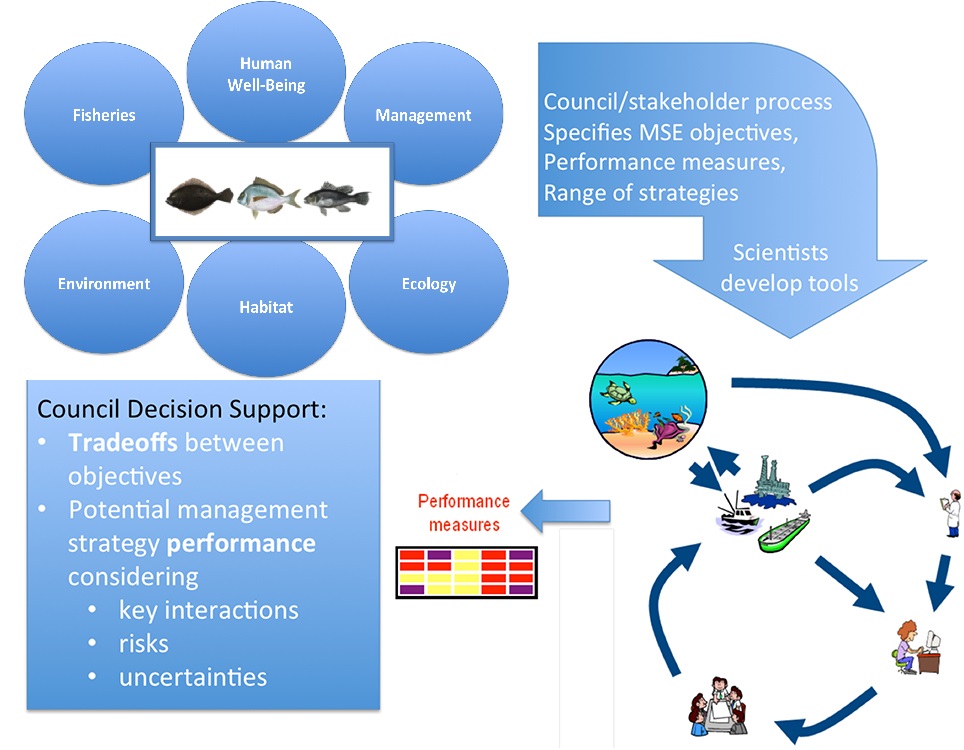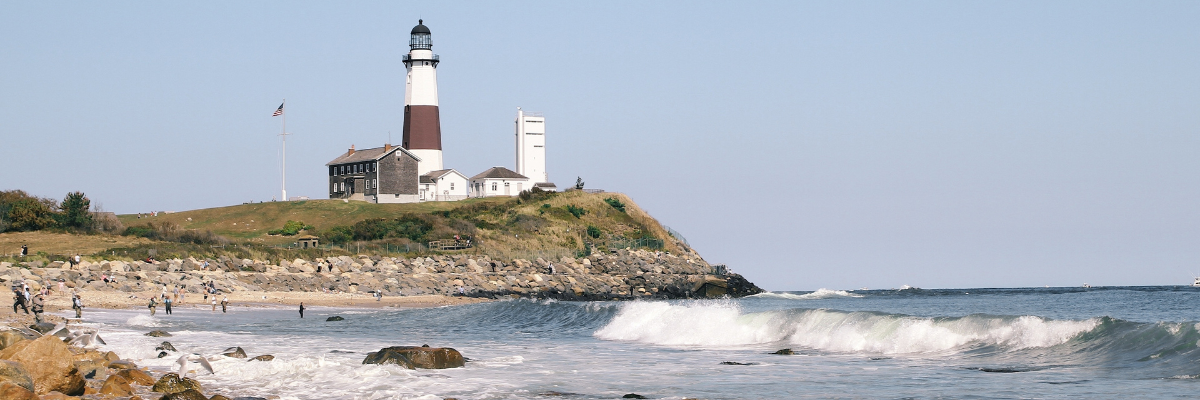Management strategy evaluations are both a component of the Integrated Ecosystem Assessment (IEA) approach and a standalone process, depending upon the context. The NOAA Fisheries MSE working group defines MSE as “a process designed to identify and operationalize strategies for managing fisheries that are robust to several types of uncertainty and capable of balancing multiple economic, social and biological objectives". In essence, it is a process to evaluate how well we are achieving our objectives. A typical application of an MSE consists of using one or more operating models that incorporate sufficient complexity to simulate variability in a state process (e.g., fish population, ecosystem or economic dynamics), and an estimation model to perform virtual data collection, analysis and management advice and, often for management applications, a stakeholder participation component. To learn more about other MSE's conducted by other NOAA IEA regions go here.
The effects of alternative management strategies (e.g., data collection systems, assessment methods, harvest control rules, adapting management to a changing climate, protected resource take reduction strategies, etc.) can then be examined relative to multiple objectives associated with the system (e.g. catch, abundance, economic gain, annual variation in catch, emergent ecosystem properties, conservation level achieved, biodiversity etc.). Stakeholder participation is essential to elucidate multiple objectives, to parameterize the human component of the system and to foster buy-in for the process.

